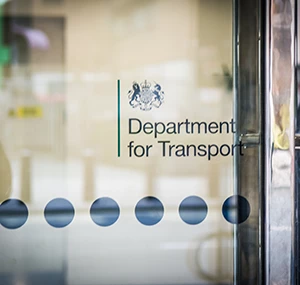HS2 has confirmed in its accounts that £9.5M has been set aside to cover the cost of IR35 compliance failings made between April 2017 and November 2020, which HMRC are currently investigating.
This takes the total value of IR35 compliance errors across the Public Sector to £272.5M, including an enormous £87.9M tax bill received by the Department for Work and Pensions. But where previous cases have hinged on the use of the Government’s Check Employment Status for Tax (CEST) tool, and its failure to provide either the correct result or any protection to its end user, this case hinges on who was responsible for determining IR35 status.
What is this IR35 investigation about?
We understand that HS2 did rely on CEST to complete IR35 determinations, and the results have been described as “curious” since more than 93% of contractors were found to be inside IR35, which is unexpectedly high. The implication is that once again CEST may have failed to produce correct results, in this case leaving contractors inside IR35 when they shouldn’t have been, and increasing costs for HS2.
However, the matter under investigation concerns a number of contractors who were engaged though a third party on a “contracted out services” basis. In these instances, HS2 did not carry out IR35 status determinations at all, believing this to be the supplier’s responsibility.
How contracted out services interact with IR35
Where a service or project is fully contracted out, the service provider would be responsible for determining IR35 status. Some end clients have engaged consultancies on that basis, as a way of offloading their responsibilities under IR35. Problems arise when the consultancy is providing labour, rather than a fully contracted out service.
A genuine consultancy will:
Have an overall price for the provision of the whole project or service
Independently staff the project or service
Assume financial risk and control – potentially making a loss or increased profit
It’s important that consultancy arrangements are not contrived for tax reasons, and any suggestion that the consultancy is supplying labour for the client’s use will see responsibility for IR35 status falling back on the end client.
How does this affect a contractor’s IR35 status?
Contracting for a consultancy does not in itself affect your IR35 status, but it does affect who is responsible for determining it. If the consultancy is a large or medium company, they will be responsible and they should provide you with a status determination statement, just as the end client would have if you were contracting for them.
If the consultancy fits the official definition of a small company, they are exempt which means you will be responsible for determining your own IR35 status. Again, this does not mean you’re automatically outside IR35.
If you’re contracting for a consultancy
The experience of working for a consultancy will be slightly different to working for the end client. As the entire project or service will be contracted out, you wouldn’t expect to have much contact with the client’s staff and you certainly wouldn’t expect to receive instructions or directions from them.
Assuming the consultancy and client have got the details of their contract and relationship right, your IR35 status will depend on your relationship with the consultancy. As usual, you will be outside IR35 if this relationship is a business-to-business arrangement, rather than one that resembles employment.
If you have questions or if we can help in any way, please call our expert team on 01296 468483 or email info@orangegenie.com.
